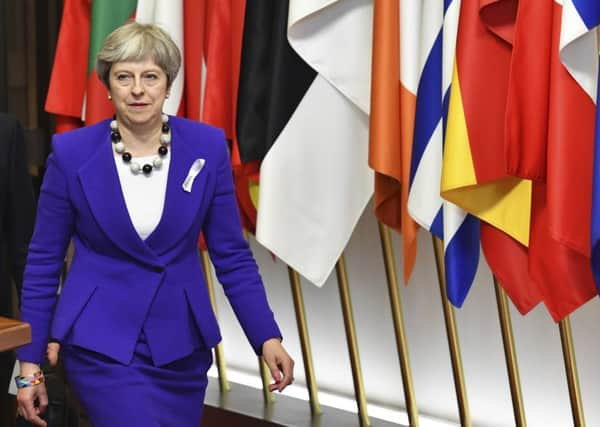Nick Baines: Brexit will be no land of milk and honey


My concern is to ask the Government seriously to consider improvements to the Bill – in order both that the people should be clear about the how as well as the what of Brexit and that the transition to a final arrangement might be as good as we can get it. It is my understanding that this is both the role and the responsibility of this House.
I remain concerned that a deeply divided country is being offered two stark alternatives which, if you will bear with me, I will put in biblical terms. Like the people of Israel in the desert, we too easily romanticise the past and yearn to return to Egypt; or, on the other hand, we promise on the other side of the mountain a land flowing with milk and honey – ignoring the challenges that go with it not actually being our land to do with as we will.
Advertisement
Hide AdAdvertisement
Hide AdWe should be honest in our discourse on Brexit and acknowledge that we shall be spending some years in the wilderness as we begin to work out the consequences of the decisions we have taken and the implications of the relationships we must now begin to establish. Wilderness time is not necessarily negative time – simply a time of waiting and wishing and hoping (or recriminating), but a time for stripping away the clutter, identifying and owning our values and priorities as a nation, and actively bringing together a people divided by their varying apprehensions of events that have befallen them.
That serious need for a concrete unifying strategy has yet to be addressed seriously in either House of this Parliament – slogans and wishful thinking are not enough.
In her Mansion House speech of March 2, 2018 the Prime Minister confirmed for the first time that the UK will seek to maintain a formal relationship with certain EU agencies after Brexit. She further acknowledged that the terms of the future UK-EU relationship may see the UK Parliament take the step of replicating certain provisions of EU law.
She then went on to set out what the mutual benefits of such an approach might be. These include firstly, that such membership is the only way to ensure that products only need to undergo one series of approvals in one country; secondly, that such membership would enable the UK to contribute its technical expertise in setting and enforcing appropriate rules; and thirdly, that this might then allow UK firms to resolve certain challenges related to the agencies through UK courts rather than the ECJ.
Advertisement
Hide AdAdvertisement
Hide AdShe concluded with a further statement about the sovereignty of Parliament and the acknowledged costs of rejecting agency rules for membership of the relevant agency and linked market access rights.
Now, it is important to remember that these decentralised agencies were originally established following a proposal from the European Commission and agreement by both the European Parliament and the Council of the European Union. Which, if I am correct, means that the establishment of over 40 bodies was achieved with the support of the UK.
Surely it makes sense, then, to be consistent and retain access to them.
As the Prime Minister made clear in her speech, there will be consequences of not doing so. For example, the European Maritime Safety Agency (EMSA): Our international reporting and monitoring obligations on maritime safety are currently handled via EMSA and there are shared EU rules on seafarer working conditions, which enables the UK to maintain its status as a ‘quality flag state’ under international law. The complexities involved in replicating this would appear to be immense. Furthermore, establishing a domestic equivalent to the EMSA will inevitably put a huge strain on the civil service, take many years to negotiate, and will be enormously expensive.
Advertisement
Hide AdAdvertisement
Hide AdI could equally cite the European Aviation Safety Agency, the European Chemicals Agency, Europol, the European Medicines Agency, and others.
Is it not probable that any future UK-EU trading relationship might demand replication of certain EU measures – product safety regulations, for example? As other regulations continue to evolve in Brussels in the years to come, is it not probable that the UK might have to keep pace, if reciprocal arrangements with the EU27 are to continue?
I think it is fair to say that although amendments relating to EU agencies were rejected in the House of Commons, this was possibly because the Government had not at that point announced its policy position. Now that the policy position is clear, sending this amendment back to the Commons simply gives an opportunity for further debate on future UK-EU co-operation.
It does no one any favours to pretend we are where we are not; it does everybody a favour to attend to a detail that at least has the virtue of acknowledging the uncertainties ahead, the size and potential costs of the journey upon which we have now embarked, and gives one element of shape to what to many looks, to quote another biblical line, somewhat “formless and void”.
Nick Baines is the Bishop of Leeds. This is an edited extract of a speech he gave in the House of Lords.